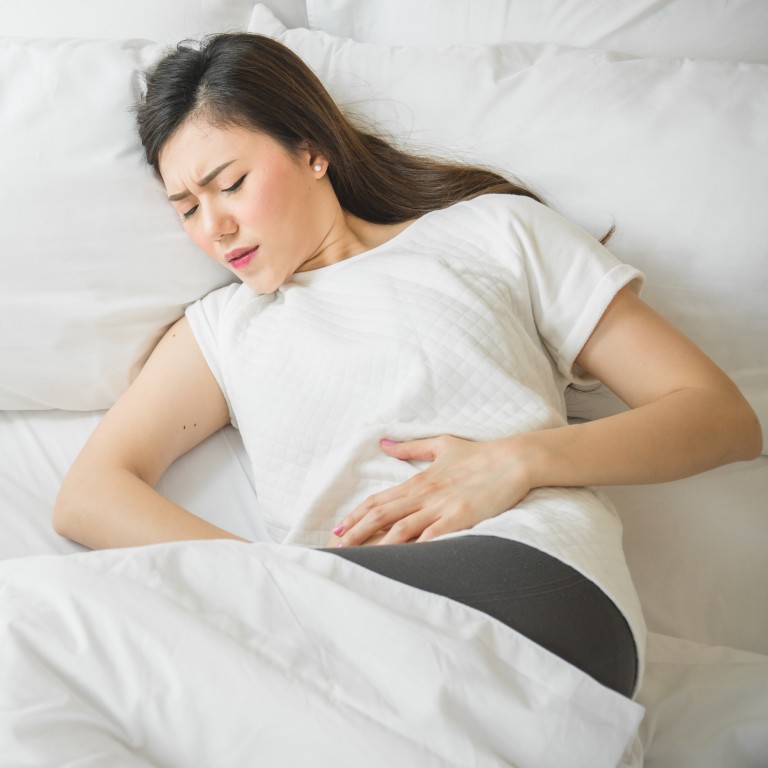
Chinese province grants women two days’ paid ‘period leave’ a month, but some fear it will lead to workplace discrimination
- Liaoning province in China will grant women one or two days ‘period leave’ each month – but many fear a backlash
- Companies will be required to offer the time off to women with medical proof of severe menstrual cramps
Women who work in the province of Liaoning in northeastern China will be given two days’ leave a month for period pain. The new regulations are part of a government push to improve women’s rights in the workforce, but not everyone believes it will achieve that.
Wei Yiran, 26, fears it will increase discrimination in the workplace and create barriers for women seeking jobs. “My first reaction was that this would make it more difficult for women to find work,” says Wei, 26, a Guangdong-based volunteer teacher who educates young women in rural China.
“Chinese employers have long treated women and their pregnancy as costly burdens. Adding menstrual sick leave, employers might feel hiring women will bring too much hassle,” she says.
The new law, beginning in March 2021, requires companies to offer one to two days leave for employees suffering severe period pain, provided they have medical proof.
If everyone obeys the regulations and respects women, then the new order shouldn’t be a concern
The new regulations sparked heated debate online in China, with many concerned the changes would be detrimental to working women. “Next year, we might see a news piece about a woman getting fired for taking a menstrual sick leave,” said one of the most popular comments on Weibo.
The rules are part of a raft of new labour protection regulations by the provincial government, which also includes 98 days of maternity leave, an annual gynaecological examination paid for by the employer, and expanding anti-sexual harassment training in the workplace.

In August, state-owned newspaper the Liaoning Daily reported that the government drafted certain sections of the regulations in preparation for expected policies that will loosen the limit on the number of children Chinese families are allowed to have.
The Liaoning government hopes a more flexible work environment will create a work-life balance that will encourage women to have children.
China’s population is expected to begin shrinking around 2030 because of a rapidly ageing population and dwindling birth rate. Many fear the shift could significantly slow economic growth and strain the health care system and pension fund.
The NGO that fights to end period poverty in Hong Kong
Wei argues that giving women period leave won’t result in more women giving birth. She says the decision is based on a woman’s circumstances and her opinion about the future her child would be born into. She believes the government should offer tax and financial incentives to employers for hiring women.
Menstrual leave is already provided in Ningxia, and Shanxi and Hubei provinces. Globally, women in Japan have been granted menstrual leave since 1947, and female employees in Taiwan and South Korea are offered one day a month, according to CNN.

02:07
China’s new wave of young women stand-up comedians tackle stereotypes
Indonesia offers women two days leave a month, but they rarely take it because employers perform physical examinations on them before allowing the leave, CNN reported.
A poll by online media outlet Cover News, showed almost 60 per cent of the 51,000 participants supported the new policy while 30 per cent feared it would make it more difficult for women to find work. Many of the participants called on other regions of China to consider introducing similar policies.
Period drama: how Asian women broke the menstruation taboo
Chinese-born writer and social commentator Lijia Zhang says the changes were a sign of social progress, pushed by more assertive Chinese women. “For a long time under Mao, his idea of gender equality was to deny the physical difference between men and women. The model women of the time were the ‘iron maidens of Dazhai’ who could carry as much night soil as men,” says Zhang.
She said the legislation would help lift the taboo surrounding women’s health issues, and encourage the public to have a conversation about a condition that affects so many women.
“I understand that some women are worried that the period leave may make it harder for women to find employment, but if everyone obeys the regulations and respects women, then the new order shouldn’t be a concern,” she says.

